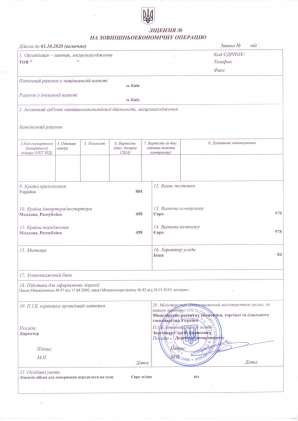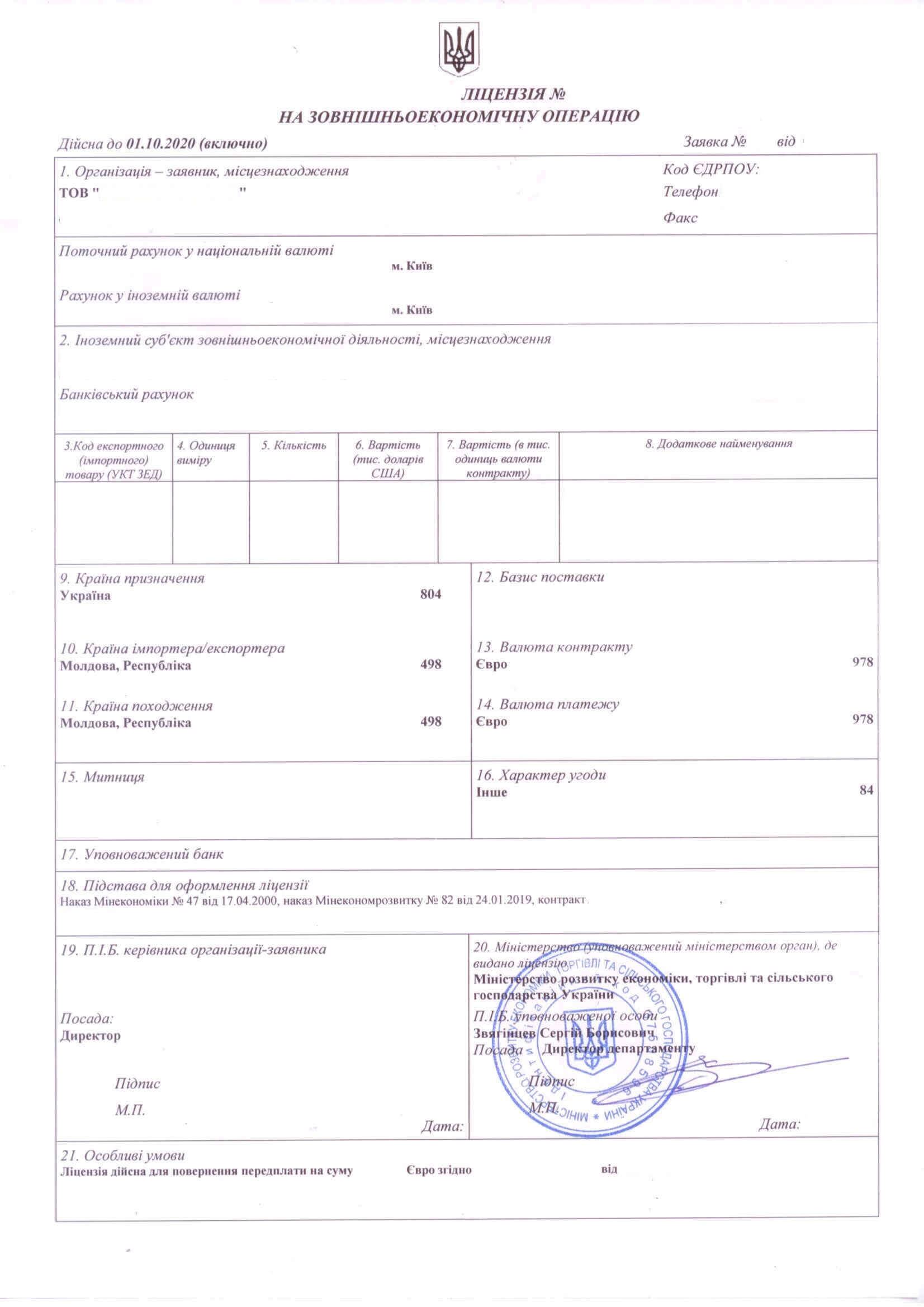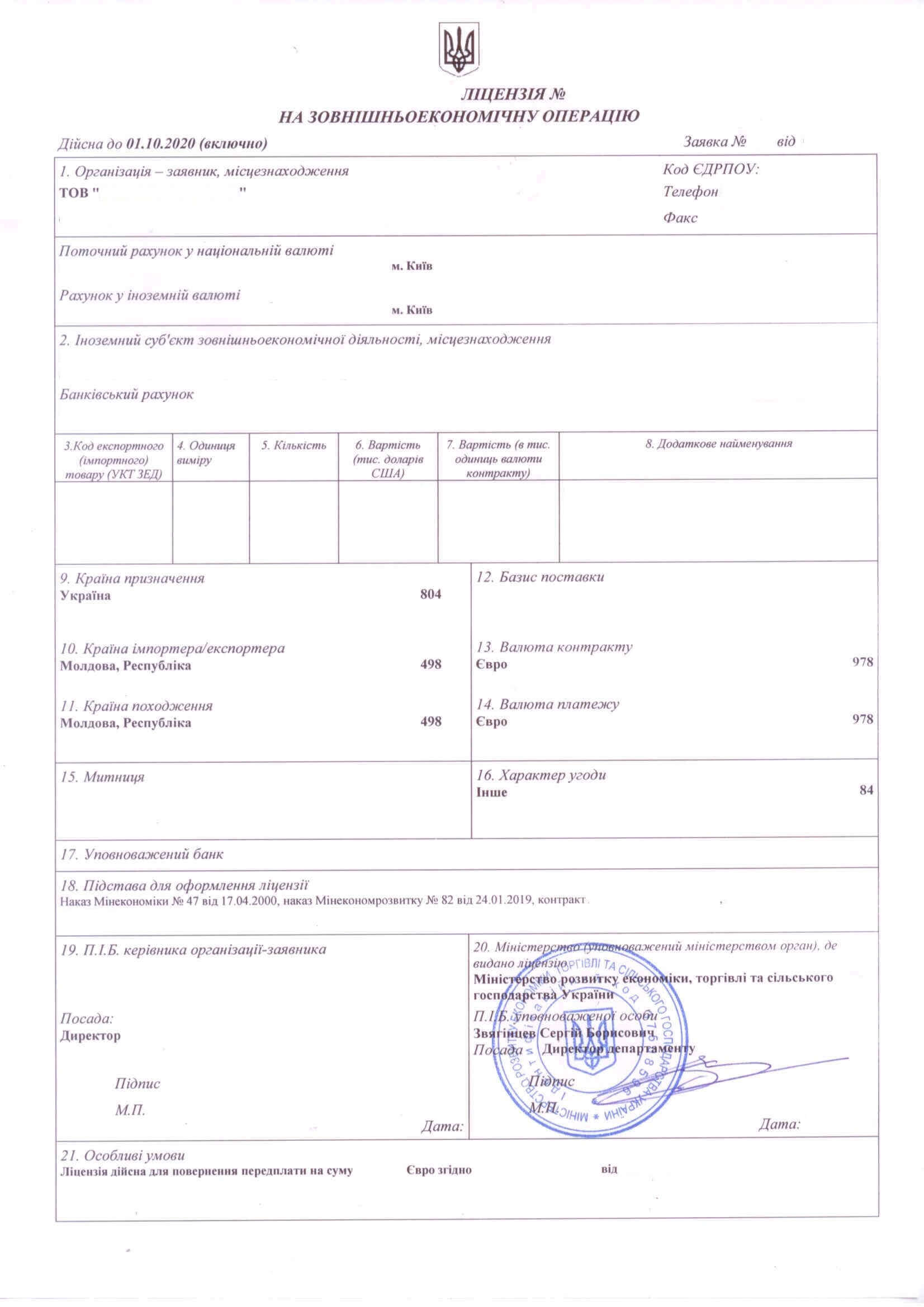What substances are licensed for the import of ozone-depleting substances?
Cost of services:
Reviews of our Clients
... our work on joint projects assured us of your high level of professionalism
A client approached us with plans to import aerosol cans of shoe paint into Ukraine. However, they encountered difficulties right from the start at the customs. The client was informed by the customs broker that in order to import this type of product, they needed to obtain an import license for goods containing controlled substances. Interestingly, the client's colleagues had assured them that such products could be imported without needing such a document.
Given this situation, our specialists were tasked with answering the following questions:
- What exactly are controlled substances?
- Which products require licensing for importation?
- How can one obtain the necessary license for importing goods that may contain controlled substances?
- Is it really necessary for the client to obtain such a license in their specific case?
In this article, we will provide comprehensive answers to these questions. Our aim is to help you find a solution to your specific problem. If you require professional assistance and want to be 100% confident in the accuracy of the solution, feel free to contact us for a personal consultation.
What are controlled substances that require an import license in Ukraine?
The depletion of the ozone layer has emerged as a significant environmental concern in the late 20th and early 21st centuries. This global issue has prompted countries worldwide to unite in safeguarding the environment. As a signatory to the Montreal Protocol, Ukraine has assumed responsibility for monitoring operations involving substances that deplete the ozone layer.
Consequently, the Ukrainian government exercises meticulous oversight over the import and export of substances known to deplete the ozone layer, as well as goods that may contain such substances, within its customs territory.
Under the current legislation, substances that contain ozone-depleting components or fluorinated greenhouse gases are classified as controlled substances.
Presently, obtaining the relevant license is mandatory for importing or exporting controlled substances or goods that may contain them into or out of Ukraine.
However, navigating this process can be challenging since you need to be knowledgeable about all the substances present in your product and determine whether any of them fall under the definition of a "controlled substance."
You may also like: How to Obtain a License for Exporting Ozone-Depleting Substances
Which ozone-depleting substances require import licensing?
When it comes to transactions involving products or substances, particularly import and export, certain substances and goods require licensing. Here are the substances and goods that fall into this category:
- Ozone-depleting (controlled) substances and fluorinated gases.
- Goods that contain controlled substances.
The definitive list of substances and goods subject to import/export licensing is outlined in the resolution issued by the Cabinet of Ministers of Ukraine.
Among the widely used ozone-depleting substances, the following deserve special mention, as they are often utilized in the production of refrigerants:
- Carbon tetrachloride: This highly toxic liquid substance serves various purposes such as pest control, solvent (for oils and varnishes), stain remover, and has been historically used as a refrigerant or fire extinguishing agent. However, its decomposition leads to the formation of compounds that harm the ozone layer.
- Methyl chloroform: This colorless liquid is commonly employed in metal cleaning, including the treatment of non-ferrous metals, and as a degreaser for highly sensitive equipment. It also functions as an effective solvent.
- Halon 1211 (Bromochlorodifluoromethane) and Halon 1301 (Bromotrifluoromethane): These gases find primary application in fire suppression systems, particularly for equipment that may sustain damage from residues left by powder fire extinguishers. Halon 1301 can also be utilized in the production of microchips.
- Chlorofluorocarbons (CFCs): These chemical substances were extensively used as refrigerants in the previous century.
In general, it is important to license the import and export of chemical substances and compounds that contain chlorine molecules from Ukraine. These substances play a significant role in ozone depletion, as they can react with ozone (O3) and contribute to its destruction.
Therefore, we advise entrepreneurs who are planning to import or export substances, chemical products, or other goods to carefully examine the composition of their products. Specifically, they should look out for volatile liquids, solids with chlorine content, chlorofluorocarbons (CFCs), fluorinated ethane compounds (such as propane or methane), and similar substances.
Considering the various applications of these substances that negatively impact the ozone layer, we can identify several commonly used groups of goods that may require licensing:
- Bleaching agents and stain removers.
- Paints and lacquers in aerosol cans.
- Personal hygiene products (including skincare, haircare, oral hygiene, and aftershave products).
- Weapons and personal protective equipment in aerosol packaging.
- Fire extinguishers.
- Pest control products.
- Furniture and shoe care products.
If your product is listed, you need to check its composition to determine if you require a license.
It's worth noting that sometimes the requirement for licensing applies specifically to products contained in aerosol packaging. For example, this requirement applies to skincare products, haircare products, fire extinguishers, and shoe care products. On the other hand, the packaging is not crucial for licensing air humidifiers, textile equipment, food production equipment, or refrigerators.
In addition, it's important to note that the main legal requirement is the presence of controlled substances in the composition of a specific product. If you're planning to import items like aerosol-based personal protective equipment or refrigerators that do not contain or utilize ozone-depleting substances listed in the regulations, you do NOT need to obtain a mandatory license.
One of our clients recently had their product packaged in aerosol form, which drew the attention of customs officials. Our team of experienced lawyers helped analyze the product's composition to determine whether the shoe paint required licensing. This proactive approach prevented any prolonged delays and unnecessary expenses that our client could have faced.
To find out the cost of a license for importing ozone-depleting substances and to receive consultations on this matter, you can visit our website or contact our specialists to create a personalized service package.
If you're interested in simplifying the export/import procedures for ozone-depleting substances or products that may contain them, don't hesitate to reach out to us. We can help clarify any licensing inquiries regarding export and import activities and make the process of moving products across the customs border more efficient.
Didn’t find an answer to your question?




